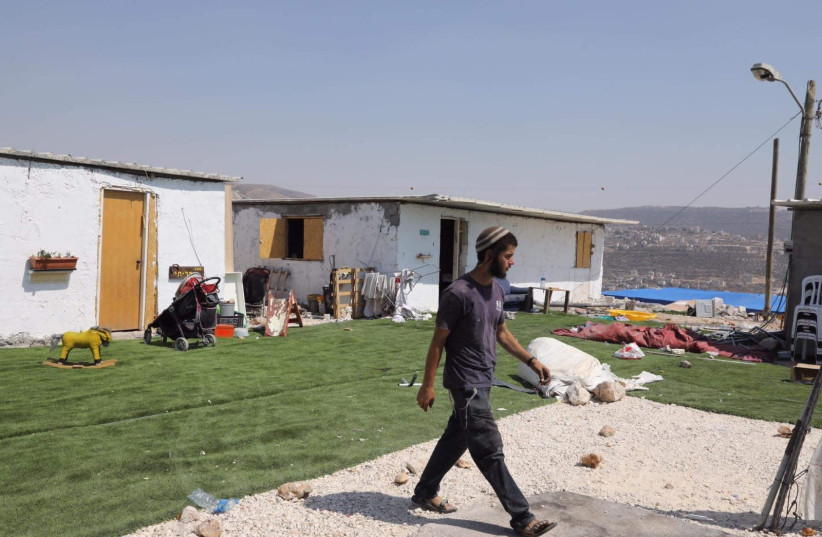Public Security Minister Omer Bar Lev (Labor) pledged to block the authorization of the settler outpost of Evyatar, hours after Prime Minister Naftali Bennett said he planned to move forward with plans to build a new West Bank settlement on the hilltop.
“There are enough ways to dissolve this agreement,” Bar Lev told Army Radio on Sunday morning. “The Evyatar community [outpost] was illegal and illegal communities should be evacuated,” the minister added.
Bar Lev spoke the morning after Bennett told reporters he plans to stand by his authorization pledge in July to 50 families that illegally moved to the West Bank hilltop in May. Bennett promised them he would legalize their community as a new settlement, starting with the creation of a yeshiva on the spot, if they would voluntarily evacuate.
Bar Lev said he had opposed the agreement with the settlers in July, and that he continues to oppose it, including the issue of building a yeshiva on the site.
“I don’t think there should be a yeshiva there,” he said.

Although the Evyatar initiative was a coordinated effort by the Samaria Regional Council headed by Yossi Dagan and the grassroots Nahala Movement headed by Daniella Weiss, it also had the support of many right-wing politicians.
Bar Lev blamed Evyatar’s creation on the hilltop youth, the moniker for extreme right-wing teens and young adults who are active in Judea and Samaria.
“The hilltop youth are attempting to set the agenda of what will happen here,” he said.
Meretz Regional Cooperation Minister Esawi Frej made similar statements to Army Radio last month.
The Evyatar outpost was first created in 2013 to protest the death of 31-year-old Evyatar Borovsky, in a Palestinian terrorist attack at nearby Tapuah junction. It was quickly evacuated, and subsequent attempts to create a community there were promptly halted.
In May, 50 settler and right-wing families moved to the site in the aftermath of another Tapuah junction terror attack, in which 19-year-old Yehuda Guetta was killed.
The issue of Evyatar and the outposts in general is one source of tension between Bennett and the United States and the European Union. Opposition to it is also likely to be raised when the UN Security Council holds its monthly meeting on Monday on the Israeli-Palestinian conflict.
The Israeli Right and settlers have pushed the issue of Evyatar on the grounds that the IDF land survey showed there was enough state land on the hilltop for the authorization of a settlement. They have asked Bennett, therefore, to advance the matter.
Among the coalition partners that support the legalization of Evyatar are Bennett’s Yamina Party and Gideon Sa’ar’s New Hope Party.
Weiss said “our nation” still suffers from a Diaspora mentality, but that she believed Bennett would “make an effort to stand by his word,” not just because he had formally committed the government but because of the significance of creating a new settlement.
Separately, the Ministerial Committee on Legislation delayed by four months any decision on legislation that would legalize dozens of outposts on state land in the West Bank.
MK Orit Struck of the Religious Zionist Party has no intention of waiting. She plans to bring a private members bill to the Knesset plenum for an initial reading, even though it does not have the support of the coalition.
